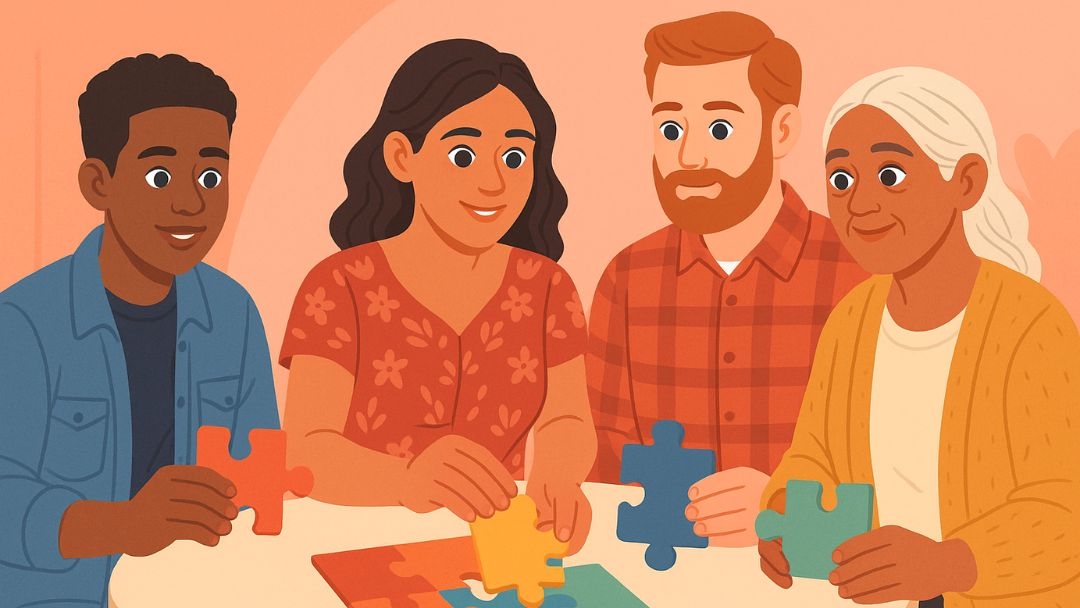How Can I Understand Myself Better? 11 Practical Ways to Discover the Real You
We often know the surface details about ourselves, such as our favorite food, style, or celebrity, but struggle to answer deeper questions like “Who am I?” or “What’s my purpose?” Yet, those questions shape our identity and guide our choices. Discover practical ways to understand yourself better and grow into who you’re meant to be.


Back
6 mins read
I once caught myself doing something I thought was completely out of character. Yet, to my surprise, my closest friends didn’t find it alarming at all. They’d always known it was something I was perfectly capable of doing.
That moment made me realize that perhaps I didn’t know myself as well as I thought I did.
How well do you actually know yourself? Is there a part of you that you’re hiding, not just from others, but from your own awareness? Do you still recognize the person you’re becoming, or have your values, interests, and passions shifted over time? Are there things you tolerate today that would have unsettled you years ago?
Getting to know yourself isn’t a one-time thing. You change, you grow, and sometimes, you surprise even yourself. That’s why it’s worth slowing down once in a while to check in and reconnect with who you are and who you’re becoming.
Related: Asking “Why Am I Like This?” Isn’t a Bad Thing — It’s a Turning Point Toward Loving Who You Are
How Do I Get to Know Myself Better? 11 Practical Tips

I’ve always been a little wary of what I might find if I looked too deeply within. We spend years trying to understand the people around us, but rarely make the same effort to understand ourselves. Yet, the more you know yourself, the easier it becomes to make the right decisions, build relationships that fit, and live in a way that feels like you.
So, if you’ve been feeling a little disconnected from yourself lately, here are eleven practical ways to understand yourself better.
1. Spend Regular Time Alone for Self-Reflection
Taking time alone to think, process, and check in with yourself helps you see where you are, who you’re becoming, and what truly matters to you.
We live in a world that is always loud. Between notifications, conversations, and constant responsibilities, there’s hardly any time for self-reflection. Make it a habit to sit quietly, even for a few minutes, and explore your thoughts, feelings, and actions. And if you’re unsure how to begin, try asking yourself a few self-reflection questions to gain a deeper understanding of yourself.
2. Journal Your Thoughts and Feelings
Journaling helps you untangle your thoughts, make sense of your emotions, and see patterns you might not notice in your head.
Sometimes your mind feels like it’s running a dozen tabs at once, each demanding your attention. Journaling helps clear that mental clutter. Grab a notebook and a pen, and write whatever’s on your mind. Writing by hand keeps you present, sharpens your memory, and helps you process your thoughts more clearly.
Don’t worry about grammar or structure; just be honest. When you write regularly, you’ll start spotting patterns, recurring emotions, triggers, and desires you might have missed before.
3. Figure Out Your Personality Type and Reflect on It
Understanding your personality helps you make sense of your reactions, preferences, strengths, and habits.
Knowing your personality type provides a clearer understanding of how you process information, make decisions, and connect with others. It can also help you identify your blind spots, leverage your strengths, and choose a career path that fits. Whether it’s the Myers–Briggs 16 Personality Test, Enneagram, Big Five, or Holland Career Test, try taking a personality test to get an objective insight into your motivations, strengths, and blind spots.
4. Examine the Fears That Hold You Back
When you understand your fears, you can uncover what drives you and what’s secretly holding you back.
I’ve learned that our fears are just as much a part of us as our strengths and values. When you understand and control them, you take away their power to hold you back. Ask yourself, “What am I afraid of, and why?” Understanding the roots of your fears helps you grow past them and make better choices.
5. Evaluate How You Give and Receive Love
Understanding your love language helps you see what makes you feel cared for and how you show care in return.
If you’ve ever felt disconnected in your relationship despite both of you trying your best, it might come down to a difference in love languages. Knowing your love language helps you recognize what you need in relationships and how you naturally express affection. Set aside a few minutes today to learn your love language.
6. Figure Out What Excites You
Your passions, hobbies, and interests reveal what energizes you and makes you feel most alive.
We all have things that make us lose track of time or light us up when we talk about them. Create a list of activities that bring you joy and excitement. If you’ve lost touch with what excites you, think back to what once made you curious as a child or what you’d do if no one were watching. The answers might surprise you.
7. Identify Your Strengths and Weaknesses
Knowing what you’re good at and where you struggle helps you concentrate your efforts on where you naturally excel.
We all love highlighting our positive traits, but we often shy away from acknowledging our negative traits. Yet, by identifying our weaknesses, we can recognize where growth is needed. Grab a notebook and list your strengths on one side and your weaknesses on the other. Try to avoid bias during this exercise.
8. Examine Who You Surround Yourself With
The people you surround yourself with can reveal your preferences, values, and life direction.
You don’t get to choose your family, but you can choose your friends. And from your choice of friends, you can get a relatively accurate idea of the kind of person you are. Take a closer look at your circle. Do they inspire you, challenge you, and support your growth? Or do they drain your energy and keep you stuck in old patterns? The company you keep says a lot about who you are and who you’re becoming.
9. Examine Your Core Values
Your personal values serve as a compass that guides your behavior, attitude, and life choices.
Our personal values are fundamental traits that guide how we live and make decisions. Someone whose core value is integrity would only chase success through ethical and moral means. What values do you live by that you’re unwilling to compromise? Take a few minutes to think about what truly matters to you. Is it honesty, peace, freedom, family, or growth? Also, take time to explore your work values. Write them down and check if your daily life reflects them.
10. Examine Your Goals and Motivations
The goals you chase and the reasons behind them reflect what drives you and how you determine success.
Your goals can tell you more about yourself than you might think. They reflect your desires, fears, and definition of success. What goals are you chasing currently and why? Is it because it excites you, challenges you, or because it makes you look good to others? Examine your goals and understand your motivations behind them to see whether you’re moving in a direction that’s true to you or one shaped by outside expectations.
11. Seek Honest Feedback from Others
The people around you can show you patterns, strengths, and blind spots you’re too close to see.
No matter how self-aware you think you are, there will always be blind spots. That’s why honest feedback is invaluable. It helps you see how others perceive your actions and personality. Ask a few trusted people who know you well to share your strengths and weaknesses they’ve noticed. You don’t have to agree with everything they say, but listen with an open mind.
Related: How to Realize Your Potential with a Personal Development Plan
How Can I Know Myself More? Common Questions People Ask About Themselves

As you dig deeper into who you are, it’s normal to wrestle with questions like the ones listed below. Each one reflects a moment of growth — a desire to understand your thoughts, emotions, and patterns on a deeper level.
- Why Do I Feel Like a Failure?
- How Can I Stop Taking Things So Personally?
- How Can I Be More Assertive?
- Why Is Everyone So Mean to Me?
- How Can I Stop Self-Sabotaging My Life?
- Why Do I Feel Unloved?
- Why Do I Overthink Everything?
- Why Do I Feel Unloved?
- Why Am I So Clingy?
- Why Am I Afraid of Success?
- Why Do I Feel Like an Imposter?
- Why Do I Keep Messing Up Relationships?
- Am I To Much of a People Pleaser?
- Am I Stupid?
- Am I Too Nice?
- Am I Too Annoying?
Personal Growth Starts with Knowing Who You Are

The more I’ve learned about myself, the more I’ve realized that self-discovery is the foundation of all personal growth. You can’t change what you don’t understand, and you can’t grow into your best self without knowing who that self is.
When you understand who you are, you make better decisions, set goals that fit you, and stop chasing things that don’t. You begin to spend your time, energy, and attention on what actually fulfills you.
Self-knowledge also improves your relationships. You communicate more effectively, set healthier boundaries, and understand what you need from others and what you can offer in return. It sharpens your emotional intelligence, helps you manage stress, and even boosts your confidence because you’re no longer guessing your way through life.
Ultimately, getting to know yourself is one of the most practical investments you can make. It shapes the kind of partner you’ll be, the career you’ll choose, the habits you’ll build, and the peace you’ll carry within you.
So, don’t rush the process or expect to figure it all out at once. Self-discovery is a lifelong journey, and every bit of insight you gain brings you closer to the person you’re meant to become.


Return to Blog






